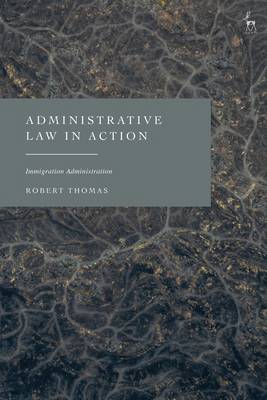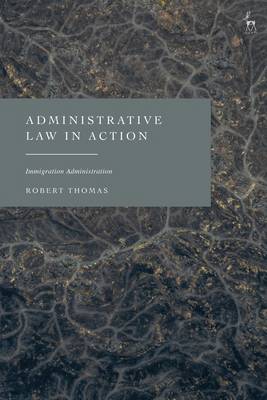
- Afhalen na 1 uur in een winkel met voorraad
- Gratis thuislevering in België vanaf € 30
- Ruim aanbod met 7 miljoen producten
- Afhalen na 1 uur in een winkel met voorraad
- Gratis thuislevering in België vanaf € 30
- Ruim aanbod met 7 miljoen producten
Omschrijving
This book investigates and analyses how administrative law works in practice through a detailed case-study and evaluation of one of the UK's largest and most important administrative agencies, the immigration department. In doing so, the book broadens the conversation of administrative law beyond the courts to include how administrative agencies themselves make, apply, and enforce the law. Blending theoretical and empirical administrative-legal analysis, the book demonstrates why we need to pay closer attention to what government agencies actually do, how they do it, how they are organised, and held to account. Taking a contextual approach, the book provides a detailed analysis of how the immigration department performs its core functions of making policy and law, taking mass casework decisions, and enforcing immigration law.
The book considers major recent episodes of immigration administration including the development of the hostile environment policy and the treatment of the Windrush generation. By examining a diverse range of material, the book presents a model of administrative law based upon the organisational competence and capacity of administration and its institutional design. Alongside diagnosing the immigration department's failings, the book advances positive proposals for its reform.Specificaties
Betrokkenen
- Auteur(s):
- Uitgeverij:
Inhoud
- Aantal bladzijden:
- 336
- Taal:
- Engels
Eigenschappen
- Productcode (EAN):
- 9781509953110
- Verschijningsdatum:
- 10/02/2022
- Uitvoering:
- Hardcover
- Formaat:
- Genaaid
- Afmetingen:
- 156 mm x 234 mm
- Gewicht:
- 639 g

Alleen bij Standaard Boekhandel
Beoordelingen
We publiceren alleen reviews die voldoen aan de voorwaarden voor reviews. Bekijk onze voorwaarden voor reviews.











